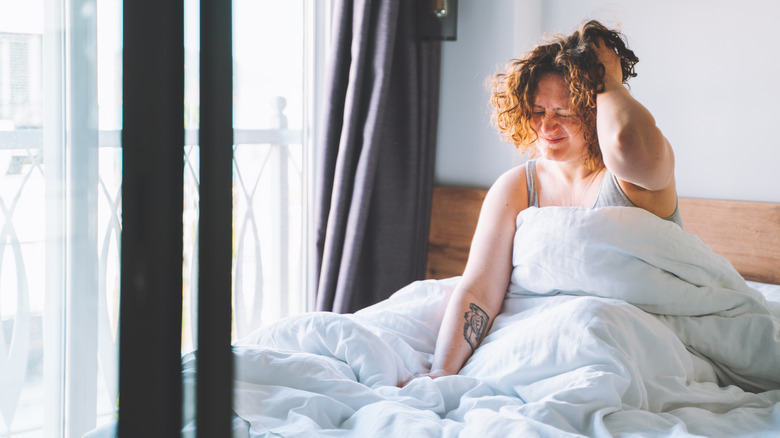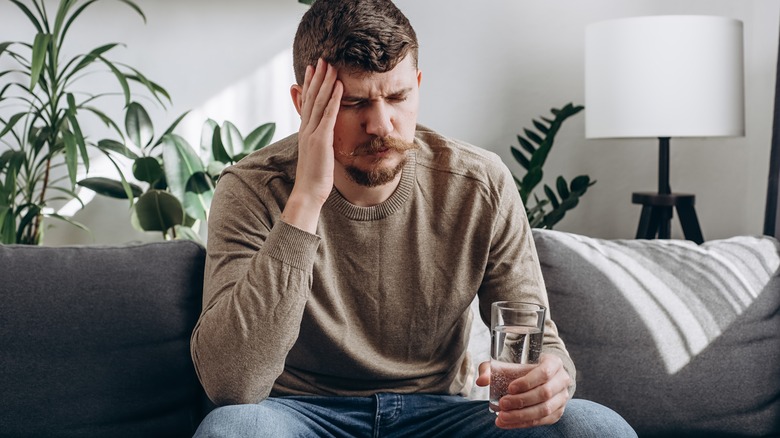Is There Science Behind Why Hangovers Make You Feel So Bad?
Your eyes stay shut as you reach over to turn off your alarm, barely awake, with a pounding headache already beginning as an unfortunate reminder of the fun you had the night before. You only had a few drinks — so why will this hangover plague you for the rest of the day? At the moment, you might not care much about the science behind your malady, but health expert Taylor C. Wallace, PhD, explained it to Daily Meal. Dr. Wallace is the CEO of Think Healthy Group and an adjunct clinical associate professor in the School of Medicine and Health Sciences at George Washington University. Needless to say, he knows his stuff — so we asked him, what's up with hangovers?
The parameters for someone to face a hangover depend on weight, tolerance, the amount of alcohol in a given drink, and a number of other factors — in general, you'll have to figure out your own limits. But broadly speaking, Dr. Wallace defines moderate alcohol intake as one drink for women and two drinks for men per day. "And you can't save them all up for Saturday night," he adds.
If you do go beyond that — or beyond your own personal limits — a hangover is likely to set in 6-8 hours after drinking or whenever your blood alcohol content drops back down to near zero.
Despite the research that has been done, there's still a lot we don't know about hangovers and why they happen. But in general, the dehydrating effect of alcohol, increased inflammation, and micro-level withdrawal are the most likely culprits for fatigue, headaches, and a general bad start to your day after a wild night out.
Hangover symptoms explained
The first thing you'll probably notice if you wake up with a hangover is how thirsty you are. Dr. Taylor C. Wallace says this is because "alcohol increases urination and loss of fluids," resulting in mild dehydration. And dehydration side effects make pretty much everything else worse — it can cause headaches, make you feel tired and dizzy, and give you a dry mouth. The general feeling of malaise that comes with a hangover, Dr. Wallace says, is triggered by the inflammation in your body that your immune system must focus on remedying.
Finally, Dr. Wallace says coming down off the high of being buzzed or drunk can cause a small-scale version of the withdrawal process. "When drinking, people may temporarily feel calmer and more relaxed," he says. "But the brain quickly adjusts, and as a result, when it wears off, it can leave you feeling restless and anxious."
Not everything is known about how hangovers form and dissipate, and why they make us feel so bad, Dr. Wallace notes — but understanding basic factors helps with hangover prevention. Drinking water and taking an anti-inflammatory medication like ibuprofen will directly address two of the significant consequences of alcohol overindulgence. Ultimately, the best way to deal with a hangover is to avoid having one in the first place. Make sure you're drinking responsibly, staying hydrated, eating snacks, and maybe even taking some multivitamins before you head to the bar to help your body break down the alcohol more effectively.

